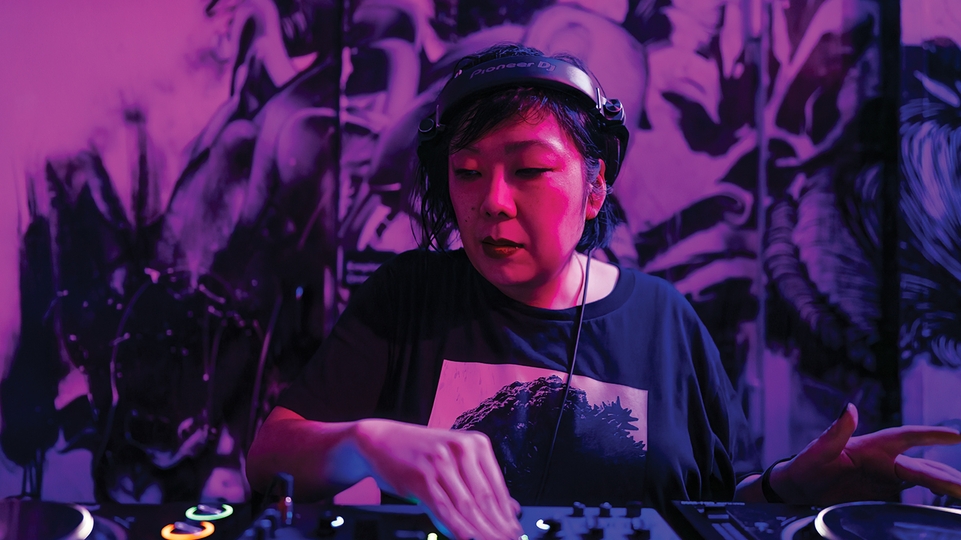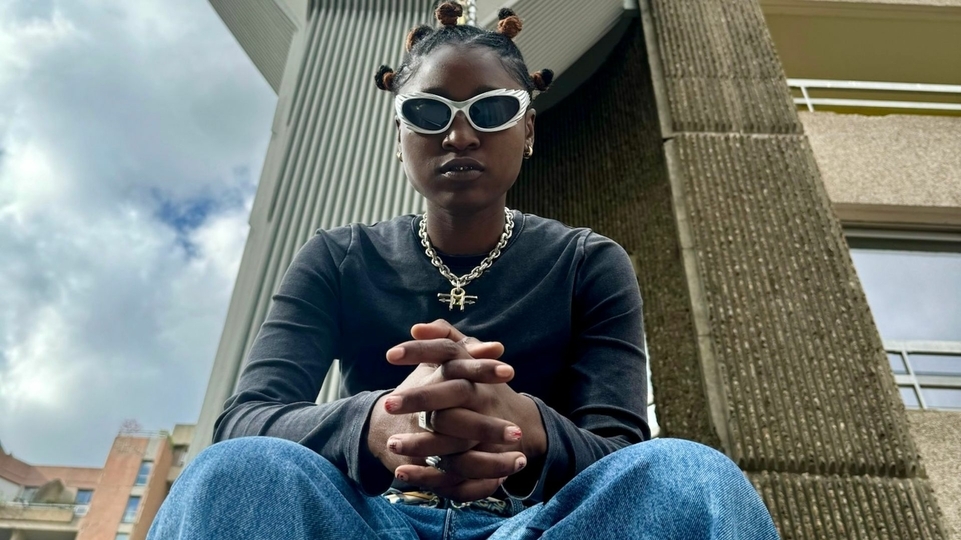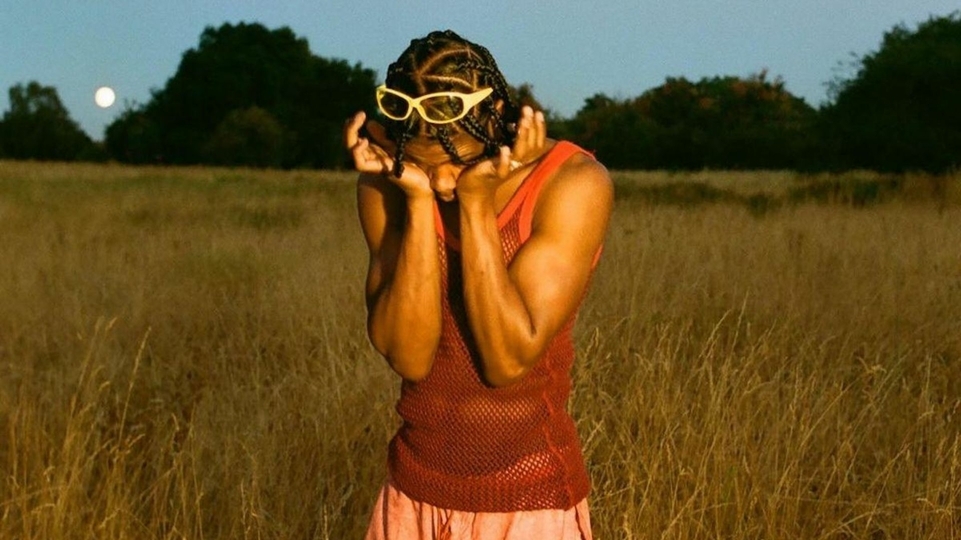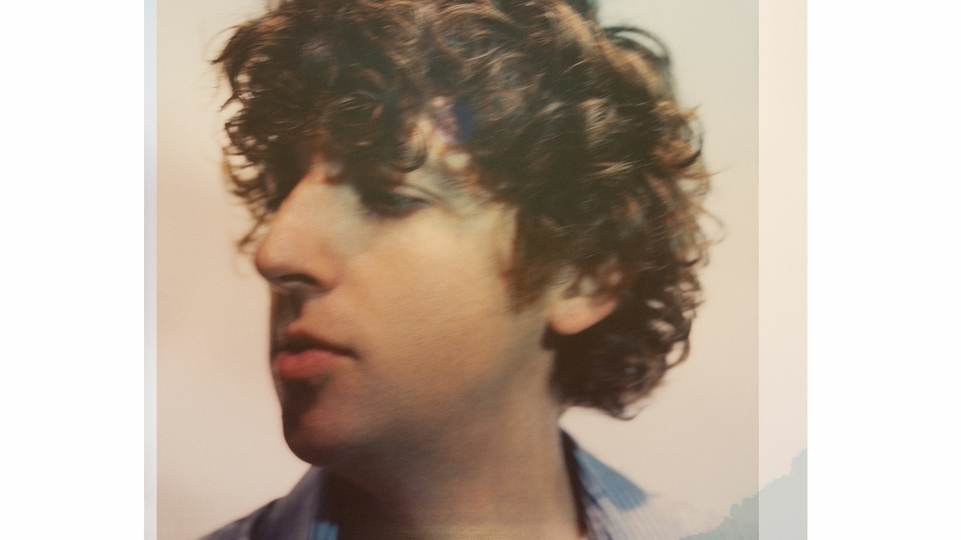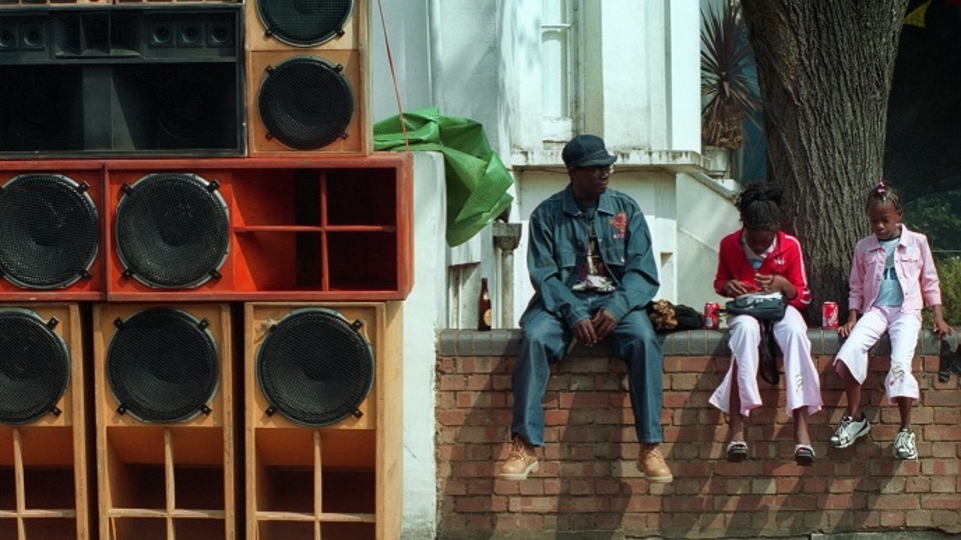
On Cue: Marcia Carr’s passion and faith
Marcia Carr is into her fourth decade behind the decks and has seen many trends come and go in that time. Throughout, she’s stuck with what truly moves her: an assortment of Black music from jazz, funk and boogie to gospel house, broken beat and beyond. She’s thought about giving up DJing on more than one occasion, but — driven by passion and faith — is now enjoying a well-deserved moment in the sun. Alongside an uplifting On Cue mix, she tells Ria Hylton her story
“There were times, I can’t do it now — don’t even ask me — where I ran up walls and did backflips.”
On what feels like one of the coldest days of the year, DJ Mag is sitting opposite Marcia Carr, electronic music aficionado and stalwart of the UK underground. In a corner café, not too far from her home in South-West London, the DJ regales us with tales of her loose-limbed days, cutting shapes with street dancers at jazz-funk all-dayers, as well as the legendary London club nights that shaped her sound. But it’s not a straightforward conversation. When we pose a question, Carr responds with a flurry of tangential anecdotes and insights — the musical development of a particular DJ, the influence of a club promoter on clubland, why certain scenes collapsed, who’s nurturing new talent. And when we try a follow-up she’s already jumped decades forward — or back — making it tricky to trace a clear line from one period of her life to the next.
The fact is, Marcia Carr has a long history, and an astonishing memory. Having witnessed iconic London scenes up close — ’80s jazz-funk all-dayers, nascent UKG Sunday parties, the early days of broken beat — PR'd for early house legends, and written for a number of music publications, there’s a lot to tell. In late February she sports a signature front bun head-wrap and Girlz B Like t-shirt under a knee-length orange raincoat. Her nimble dance moves may be long-gone, but Carr’s recollection of events — and love for DJ culture — has far from abated.
You hear this in her sets — from Blue Note jazz, early funk and boogie, to gospel house and broken beat, her mixes go deep on a range of sounds that span her musical career. Her only rule? That every selection puts a smile on your face, or, as she’s said in previous interviews, “speaks to the inner-self”. This strict music policy is underlined by a decision made some time ago, to veto explicit lyrical content. “I didn’t want to hear the n-word or the b-word,” she says. “I don’t want to play music that’s dark, derogatory and defamatory — it’s not edifying, it’s not uplifting.”
Though often cited as one of Louie Vega and Kerri Chandler’s favourite DJs, Carr has flown under the radar for much of her career. In fact, there were a number of times when she thought about bowing out entirely. “I’ve had a few dark down modes where I wanted to just give up, jack it in; where I thought, ‘How much longer can I keep doing this? I’ve done all the groundwork, I’ve earned my stripes and people keep trying to gatekeep me’.”
But in 2024, the DJ seems to be in high demand again. In the years since Covid, she’s played Panorama Bar, held residencies across East London, and spun music for curious crowds at We Out Here and Southport Weekender. Despite the setbacks, it looks like Carr is well into her second purple patch — would she agree? “And climbing,” she affirms. “I’m speaking, I’m declaring, I’m confessing it.” And what, we ask, has kept her going all these years? “My love and my passion for Black music and my family,” she replies, “and definitely my faith in God, it made a difference.”
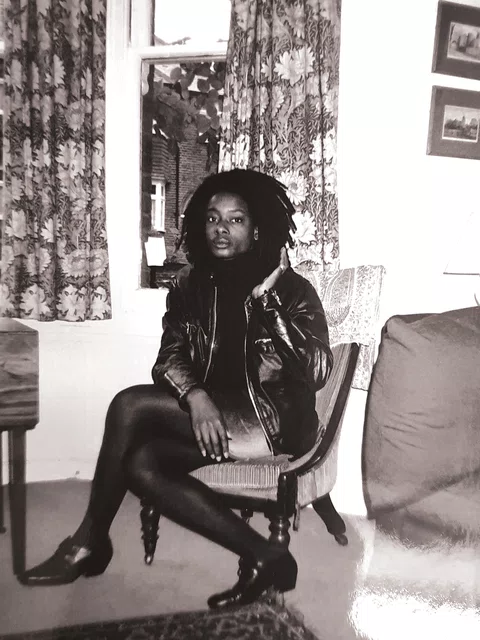
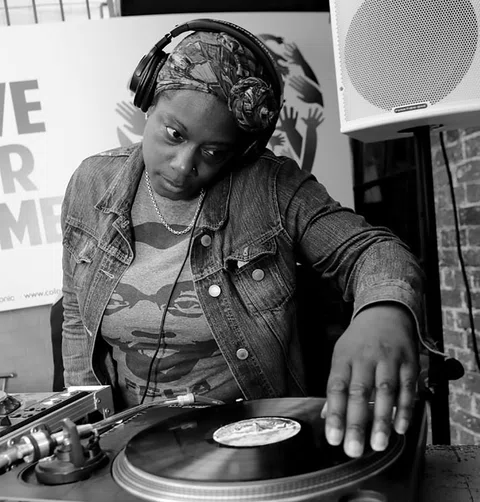
“My faith just grew and I started thinking about the gigs I was taking. What do they want from me? Am I going to make a difference? I want it to be uplifting, to make you feel good, lift your spirit.”
Carr studied ballet for two years as a child, but it was as a teenager on the jazz-funk scene where she cut her dancing teeth. “I was inspired by the guys, looking at them and trying to expand on what little repertoire I had,” she tells DJ Mag. “I learned that you could have flare on the dancefloor — all the brothers had their own signature style.” Carr dipped in and out of different scenes — all-dayers run by radio DJ Greg Edwards, West End clubs like Gullivers in Mayfair, Soul II Soul and Queer Nation nights in Covent Garden, and The Wag in Soho, a venue famous for launching the careers of many ’80s pop acts, as well as many DJs (Weatherall, Tong, Oakenfold). One thing that stood out to her at the time, however, was the number of familiar faces she’d spot across the club nights. “I was coming across some of the same guys who were just not staying in the realm of rare groove, jazz-funk, but going to other soul clubs, funk nights,” she explains. “All of these scenes kind of merged and crossed over because of the dancers, they were going to different scenes.”
Carr’s first paid gig was in the late ’80s, in a venue not far from Leicester Square. There, she spun soul, boogie and rare groove, among records that would later be classed as house, and by the early ’90s she was landing bookings by word of mouth, warming up at parties like the Colosseum's fabled Satellite Club. But then her daughter arrived, so she switched to PR and journalism, writing reviews and interviewing first-wave house producers. “I was proper hardcore hustling, because I wanted to keep a hand in the music,” she tells us. “Marshall Jefferson, Larry Heard, Kerri Chandler, Frankie Knuckles — I got to meet them all because of my music journalism.” In the years that followed, Carr continued to promote small events and play internationally, but she also struggled to return to the initial buzz of her early years.
Carr was never part of a clique, or the UK rave scene — “people that looked like me didn’t really attend that much, plus they were very drug-driven” — and, throughout the ’90s, became increasingly drawn to music with a clear spiritual bent. “My faith was growing,” she explains. “The more I’m reading the word of God, the more I’m being drawn.” At one point she was bleaching it, heading straight from the rave to church. “My faith just grew and I started thinking about the gigs I was taking. What do they want from me? Am I going to make a difference? I want it to be uplifting, to make you feel good, lift your spirit.”
In 2015 Carr launched Girlz B Like, her longest running club event to date — a vinyl-only party with an all-female line-up. The inaugural event was held in the basement of the Book Club in Shoreditch, with former DJ Mag cover star Josey Rebelle and Katie Barber on that evening’s bill. “I wanted to include dancers — as an ex-dancer myself I wanted dancers to feel part of the night,” she explains. “The music wasn’t aimed at peak-time crowds, it was just good quality Black underground music chosen by women selectors.”
After moving around for the first few years, Girlz B Like found a home in Grow, Hackney, where it could build a loyal following. That said, Carr is cautious about bookings, careful to select DJs who play according to her music policy and are deep diggers. “We’re selective about who comes to play here, because I wanna see your history, your love for vinyl,” she says. “This is an art and a culture. This is how I separate the wheat from the chaff.”
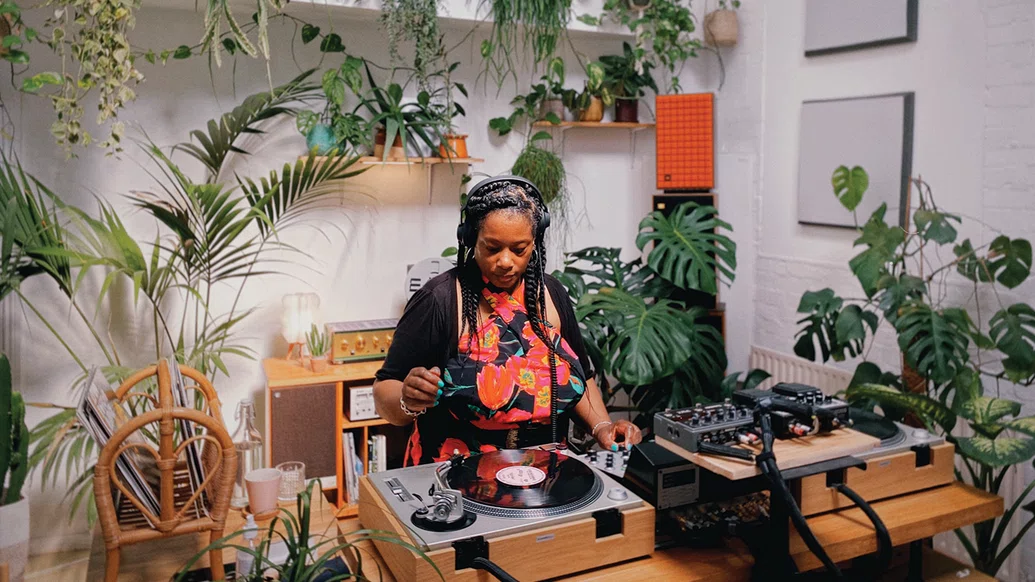
In 2017, Carr launched another project — 2 Decks and Mixer, a Facebook live-stream — from her living room. The idea came to her after hours spent watching other DJ sets online. It was a novel idea pre-Covid, but it caught on. “God said, ‘Just start where you’re at’. I kept looking at my living room and thought: this doesn’t look like a professional studio, I can’t do this — my living room looks like a record warehouse! But it kept coming back to me, ‘Start where you’re at’. I had to let go of my pride. So I just set up the camera one day and, just like I’m sitting here talking to you, I talked to the camera.”
Three episodes in and she was attracting views in the tens of thousands, and when she got to the first anniversary she decided to mark the occasion. “I thought, 'I wanna celebrate this', and ‘roadshow’ came to my spirit.” Carr emailed all the record shops she could think of, proposing she host shows in their store. “I said, ‘While I’m doing the stream I will get some guests in to interview and plug you [the shop’s name] on the show,’ — can’t say fairer than that.” Soul Brother Records, Rye Wax, Pure Vinyl Records and BBE Records all signed up and Carr invited guests, among them Norman Jay MBE, Omar, Aroop Roy, Vanessa Freeman, and Shy One.
Carr’s broadcast roots go back nearly as far as her DJing. From the Sunrise FM pirate station, launched in ’88, where she leaned into the soul, funk and rare groove pockets of her collection, to UK Rumble, where she made use of her journalism contacts, bringing house heavyweights into the station’s barebones studio, radio has been a career mainstay. “I had Dennis Ferrer, Kerri Chandler, Tony Humphries in,” she tells us about her time at UK Rumble “and you know what? The studio was a dive, but they respected what I was doing. It was nice to have the support of the Americans.”
After a few guest show appearances for Rinse FM, Carr was invited to take up her own spot. Prior to that she’d been at Mi-Soul in Deptford. The DJ now holds a residency at The BoAt Pod, a radio station housed in a canal boat in Paddington’s Little Venice, with two-hour show ¡Take The Con!. On the fourth Sunday of the month, she’ll spin anything from contemporary American gospel and gauzy deep house to jazz-inflected Latin house.
Carr, nearing her fourth decade as a DJ, shows no signs of stopping. As we leave the café she’s preparing for another Girlz B Like edition, a number of dates across London, Manchester, Bristol, and her first international gig of the year, Saint Martin’s SXM Festival. The DJ has seen many scenes come and go, but in a trend and youth-driven industry, she’s divined a path all her own. Her career is a testament to her improbable staying power, and her faith.
